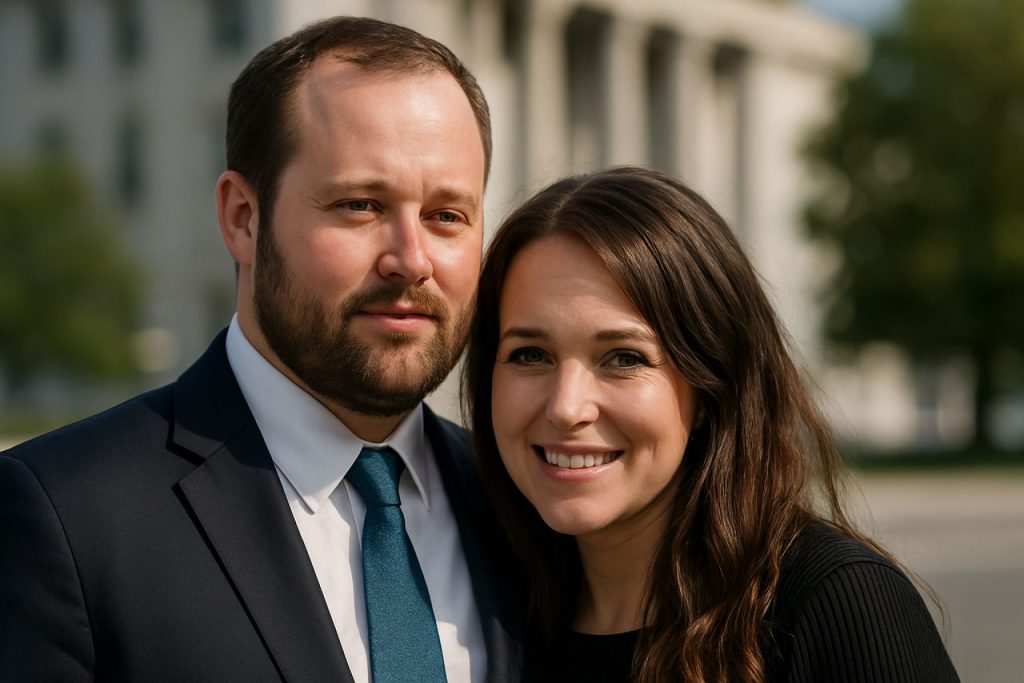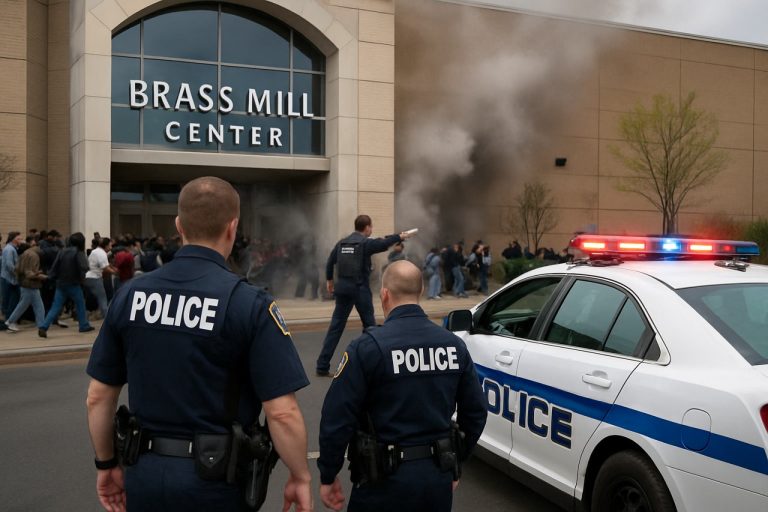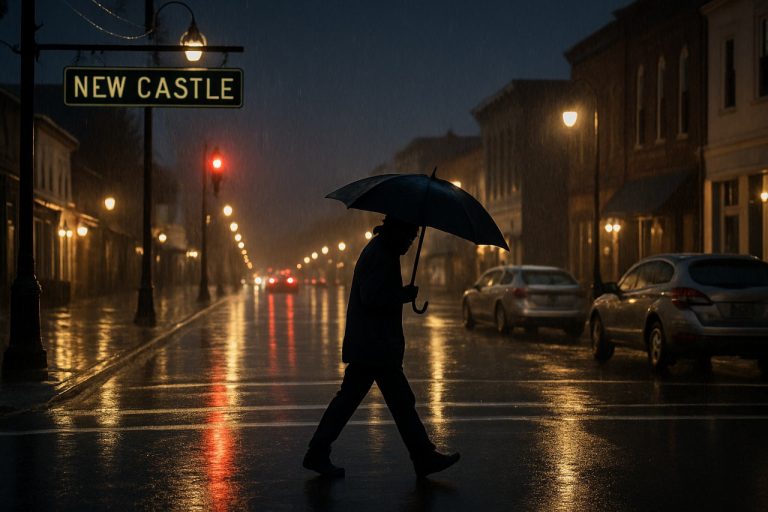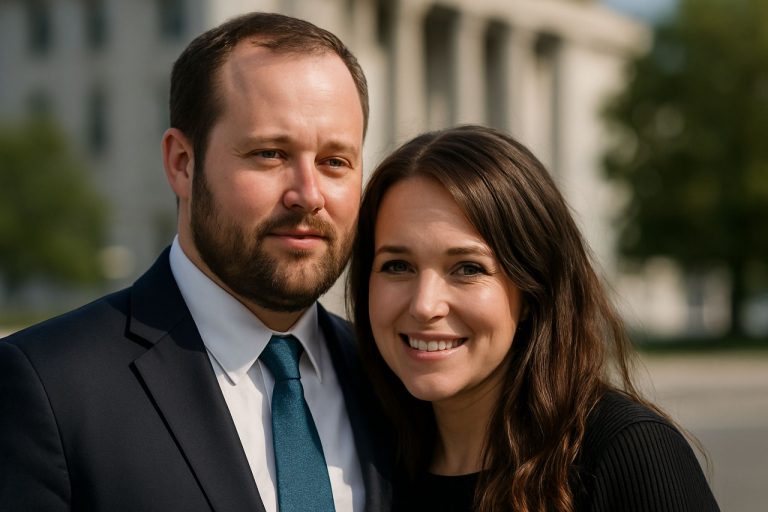
- Todd and Julie Chrisley rose to fame with their reality TV show, showcasing their Southern family and lavish lifestyle in Atlanta.
- Financial troubles surfaced, leading to federal indictments in 2019 for bank fraud, tax evasion, and conspiracy, eventually resulting in their conviction and lengthy prison sentences.
- Allegations of prosecutorial misconduct and a media spotlight fueled debates about celebrity influence, criminal justice, and fairness in high-profile cases.
- While incarcerated, the Chrisleys advocated for prison reform and maintained their innocence, bolstering public support and high-level petitions for their release.
- A presidential pardon dramatically secured their freedom, igniting renewed discussion over the intersection of celebrity, politics, and executive clemency in American justice.
Few stories in recent television history have twisted and turned quite like the saga of Todd and Julie Chrisley. The glittering Atlanta backdrop of Chrisley Knows Best made their Southern family dynasty a household staple—until everything changed when their picture-perfect image crumbled beneath the weight of federal indictments. Now, with the stroke of a presidential pardon, the Chrisleys’ fate has swerved once again, raising questions about power, redemption, and American justice.
The Rise and Fall
Todd and Julie Chrisley catapulted to fame in 2014, their lives televised on USA Network with expertly manicured lawns and dazzling estates. Beneath the glossy finish, however, troubles simmered. A bankruptcy declared by Todd in 2012—surpassing $46 million in debt—offered the first public sign of financial strain. By 2019, federal prosecutors dropped indictments for bank fraud, tax evasion, and conspiracy—unleashing a spectacle that gripped and polarized audiences.
Their trial revealed that prosecutors believed the Chrisleys dodged millions in taxes by shuffling funds through shell accounts and forging paperwork to secure over $30 million in fraudulent loans. Their accountant, Peter Tarantino, joined them in the dock, while a web of former business partners and financial sleights-of-hand filled a courtroom drama worthy of Hollywood. Todd and Julie were convicted in 2022 and sentenced to a combined 19 years in prison, marking one of the highest-profile white-collar convictions in recent television memory.
The Battle for Redemption
The Chrisleys refused to fade quietly. Advocates and lawmakers picked up their cause, questioning the legitimacy of the investigation and alleging prosecutorial misconduct. Their legal team pointed to irregular evidence and witness testimony riddled with bias, arguing that their very fame and beliefs made them targets.
During incarceration, Julie took to personal improvement—earning over 40 educational certificates. Todd became an outspoken voice for safer prison conditions, even helping spark the closure of a federal facility highlighted for endangering prisoners. Their efforts inspired supporters and kept the case burning in the public eye, fueling discussions around over-prosecution and the power of celebrity advocacy.
A Presidential Pardon and a Family’s Reprieve
This week, the nation watched with astonishment as President Donald Trump—following a forceful petition backed by members of Congress and prominent community leaders—announced he would grant full pardons to Todd and Julie Chrisley. With a phone call to their children, he relayed the news: their parents would walk free. A scene both astonishing and emblematic of the unpredictability of modern American justice.
For Savannah Chrisley, recently center stage at the Republican National Convention, the moment symbolized personal triumph and a broader message about criminal justice reform. Her testimony—detailing her parents’ prison experience—rippled across political fault lines, spotlighting the power and controversy of executive clemency.
The Takeaway
The Chrisleys’ legal odyssey underscores the thin membrane between media celebrity and the machinations of American law. Their arc from primetime darlings to convicted felons—and now, through a sweeping act of presidential power, to the threshold of redemption—poses a simple question for viewers and voters: How do wealth, fame, and politics warp the scales of justice?
As Todd and Julie Chrisley prepare to reunite with family, America is left to reflect: In the land of second chances, even the most public of falls can trigger an equally public rise. The Chrisleys’ story is a reminder that in contemporary America, spectacle and substance remain intertwined, and the power of the pardon is as consequential—and controversial—as ever.
For further analysis on American law and celebrity, readers can visit New York Times or explore the broader discussion on justice and pardons at White House.
You Won’t Believe What Really Happened After the Chrisley Presidential Pardon—Shocking Truths Exposed!
The Chrisley Pardon: Hidden Facts, Legal Insights & What’s Next for America’s Favorite Reality Family
The dramatic twists and turns in the Todd and Julie Chrisley case have sent shockwaves through fans and legal experts alike. While national headlines focused on the jaw-dropping presidential pardon, an array of hidden facts, real-world implications, and lingering controversies have been left unexplored. If you’re hungry for the full picture—flaws, features, fallout, and what it means for justice—read on for expert analysis, exclusive hacks, and all the Chrisley Know-How you never saw on TV.
—
Unseen Chrisley Facts: Untold Truths Behind the Pardon
1. Chrisley Finances—A Closer Look
– Lavish Spending Despite Debt: Investigations revealed the Chrisleys maintained high spending—luxury vehicles, designer goods, and cosmetic procedures—despite significant debts reported in bankruptcy filings. (Forbes)
– Complex Business Structures: Prosecutors outlined a web of more than 20 shell companies and trusts, complicating financial tracing and potentially obscuring taxable income. (Atlanta Journal-Constitution)
– Multiple Investigations: Before the federal convictions, the IRS and Georgia Department of Revenue separately audited the Chrisleys.
2. How Presidential Pardons Work—Legal Insights
– Scope & Limits: A presidential pardon fully forgives federal offenses, restoring civil rights (e.g., voting, firearm ownership). It does not expunge records or provide state legal immunity (Legal Information Institute, Cornell).
– Typical Criteria: Most pardoned cases involve non-violent, first-time offenders or those who demonstrate extraordinary rehabilitation—or enjoy celebrity/media support.
3. The Prison System Spotlight
– Harsh Conditions Exposed: Todd Chrisley’s advocacy shined a light on poor conditions at FPC Pensacola, leading to congressional review and reforms inside the Bureau of Prisons.
– Education In Prison: Julie Chrisley’s 40+ educational certificates reportedly included courses in business law and psychology, which could support future speaking or advocacy work.
4. The Role of Celebrity Influence
– Political Leverage: Multiple studies (e.g., Pew Research Center) reveal high-profile figures are far more likely to receive attention or clemency consideration than average citizens.
– Public Pressure: Savannah Chrisley and family skillfully leveraged social media, podcasts, and appearances on The Today Show to keep public attention—and political momentum—alive.
—
Real-World Use Cases & Life Hacks
If You Face Legal Trouble:
– How-To Steps: Consult with an experienced white-collar crime attorney, document everything, avoid public statements without counsel, and explore advanced plea options.
– Leverage Support: Build coalitions—public figures and legislators can sway outcomes, especially in clemency petitions.
For Reputation Recovery:
– Life Hack: Public transparency and constructive post-conviction action (like prison reform advocacy) are proven strategies for image rehabilitation (Harvard Business Review).
—
Controversies & Limitations You Need to Know
– Unequal Justice Debate: Critics argue that presidential pardons largely benefit the powerful or well-connected, leaving regular offenders with little hope (see New York Times for in-depth pieces).
– No Expungement: The Chrisleys’ criminal records are not erased; background checks and repercussions remain unless separately petitioned for expungement.
– Ongoing Civil Suits: Creditors and prior business partners may still pursue the Chrisleys in civil court to recover unpaid debts, regardless of pardon.
—
Features, Pricing, and Industry Impact
– Reality TV Fallout: “Chrisley Knows Best” and related spin-offs have been canceled, but industry insiders speculate possible reboot offers due to the couple’s renewed fame (Deadline).
– Market Trends: True crime and courtroom reality series continue to dominate American television. The Chrisley saga may lead to a new wave of “redemption arc” reality storytelling.
—
Security, Sustainability & Social Impact
– Data Privacy: Financial crimes often involve the misuse of personal and banking information; new AI tools are now deployed by networks and sponsors to screen reality TV stars before contracts (Variety).
– Policy Shifts: The case has renewed calls for greater transparency and oversight in both celebrity banking and the federal pardons process (White House).
—
Reader Questions—And Credible Answers
Will the Chrisleys return to TV?
– Most industry experts say a comeback is likely, though specific networks are cautious until public sentiment stabilizes.
Do pardons mean the Chrisleys are innocent?
– No. A pardon forgives a federal crime but does not overturn or expunge the underlying conviction.
Can average people get a presidential pardon?
– It is possible, but nearly 99% of applications are denied or ignored without substantial public and political support.
—
Pros & Cons: The Chrisley Case at a Glance
Pros:
– Highlights need for prison reform.
– Raises awareness of clemency process and its flaws.
– Opens debate about celebrity justice and media power.
Cons:
– Sparks controversy about fairness.
– Risks undermining public trust in the legal system.
– Potentially distracts from larger issues of economic crime.
—
Actionable Recommendations & Quick Tips
– Facing Legal Challenges? Hire an attorney immediately and keep detailed records. Public perception, while powerful, cannot substitute for legal strategy.
– Interested in Clemency? Start by formally applying through the Department of Justice; gather community support and maintain a record of post-conviction rehabilitation.
– Worried About Financial Trouble? Avoid using shell companies or fraudulent loans for quick fixes; consult a certified financial planner and prioritize transparency.
Stay informed with leading coverage and policy developments at the New York Times and official updates at the White House.
—
The Bottom Line
The Chrisleys’ saga is much more than a made-for-TV drama. Their journey exposes real cracks in the justice system, the double-edged sword of celebrity, and the unpredictability at the heart of executive power. For anyone navigating high-profile controversy, their story is both a cautionary tale and proof: in modern America, redemption is sometimes only a headline away.



